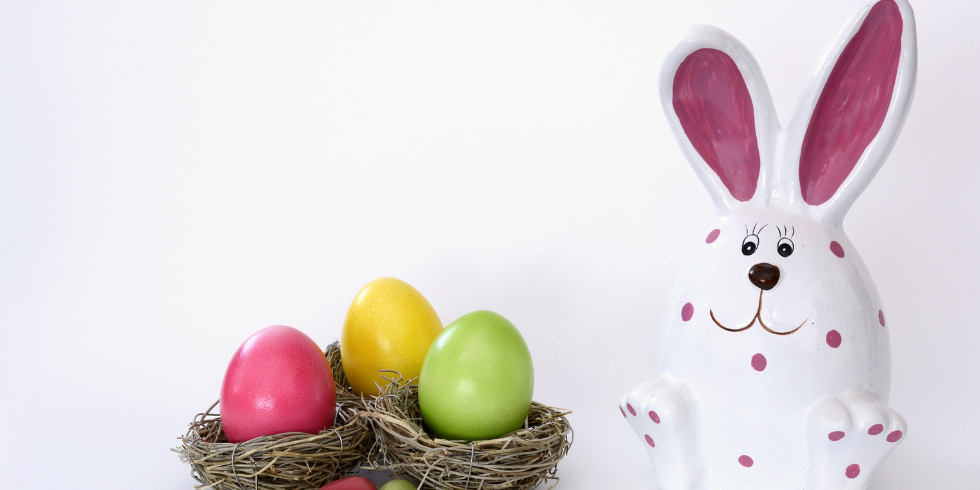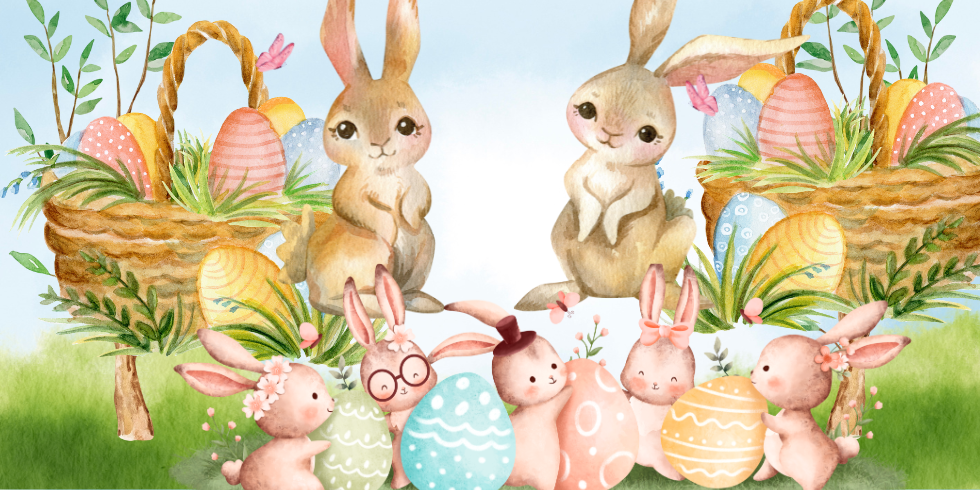
As Christians around the world prepare to celebrate Easter, it’s essential to understand the origins of some popular traditions associated with this holiday. Among them are Easter eggs and bunnies, which have become synonymous with the season but have roots that predate Christianity. Let’s explore the history behind these symbols and clarify their distinction from the Christian Faith.

The Tradition of Easter Eggs:
The practice of decorating eggs during springtime predates Christianity and can be traced back to ancient civilizations such as the Persians, Egyptians, and Greeks. These cultures viewed eggs as symbols of fertility, new life, and rebirth, particularly fitting for the season of spring when nature awakens from winter’s slumber.
Many people, mostly children also participate in Easter egg “hunts”, in which decorated eggs are hidden. Perhaps the most famous Easter tradition for children is the annual “White House Easter Egg Roll”, when children roll Easter eggs down Capitol Hill.
The Introduction of Easter Eggs to Christian Tradition:
Early Christians adopted the tradition of eggs as a symbol of new life and resurrection, aligning with the themes of Easter. The egg, when cracked open, represents the empty tomb of Jesus Christ after His resurrection.
However, it’s important to note that the association of eggs with Easter does not have its origins in Christian doctrine but rather as a cultural adaptation.

The Legend of the Easter Bunny:
Similarly, the tradition of the Easter bunny has its roots in pre-Christian pagan celebrations of spring and fertility. Rabbits, known for their prolific breeding, symbolized fertility and the renewal of life. The Easter bunny as we know it today likely originated in German folklore, where it was believed to bring eggs and treats to children on Easter Sunday.
The exact origins of the Easter Bunny tradition are unknown. Some historians believe it arrived in America with German immigrants in 1700s.
Clarifying the Non-Christian Nature of Easter Eggs and Bunnies:
While Easter eggs and bunnies have become ubiquitous symbols of the holiday, it’s essential to recognize that they are not inherently Christian. Instead, they represent cultural traditions that have been assimilated into Easter celebrations over time.
Several Protestant Christian denominations, have opted to formally abandon many Easter traditions, deeming them too pagan. However many religious observers of Easter also include them in their celebrations.
Easter foods are steeped in symbolism. An Easter dinner of lamb also has historical roots, since a lamb was often used as a sacrificial animal in Jewish traditions, and lamb is served during Passover.
As Christians, our focus during Easter should remain on the central tenets of our Faith: the death, and Resurrection of Jesus Christ.
Embracing the right Easter tradition:
Today, Easter is a commercial event as well as a religious holiday, marked by high sales for chocolate eggs, greeting cards, chocolate Easter bunnies and other gifts.
While enjoying the festivities associated with Easter, let’s also take time to reflect on the true significance of the holiday. As we gather with family and friends, let’s celebrate the Hope and Joy found in the Resurrection of Jesus Christ, the cornerstone of our Faith.
In conclusion, while Easter eggs and bunnies add color and joy to our celebrations, it’s essential to understand their origins and recognize their distinction from Christian doctrine. Let’s use this opportunity to deepen our understanding of the Easter story and its profound impact on our lives as believers.
Happy Easter!
